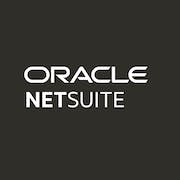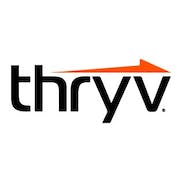Streamline your sales process and boost revenue with the ultimate lead management software buyer's guide. Find top-rated solutions and expert insights for better lead generation.
Lead management is an essential component of any successful business. Ensuring that potential leads don’t slip through the cracks and that your sales funnel remains as efficient as possible is crucial for growth. However, managing leads can quickly become a time-consuming and complicated task, especially when you’re handling a high volume of leads. That’s where lead management software comes in. By automating and streamlining your lead management process, you can focus on what really matters: converting those leads into paying customers. In this buyer’s guide, we’ll explore everything you need to know about lead management software and how to choose the right solution for your business.
What is lead management software?
This is a type of solution that helps businesses to capture, track, and manage leads for their sales teams. It offers a more structured and efficient way to manage leads, which ultimately supports the sales process.
Here are some of the common use cases for this solution:
- Lead capture: This is the process of capturing potential customers’ contact information. With a lead solution, businesses can capture leads through various channels, including website forms, social media, and email campaigns.
- Lead scoring: This is the process of assigning a score to each lead based on their likelihood to convert into a paying customer. It uses various criteria, such as demographics, behavior, and engagement, to determine the lead’s score.
- Lead routing: This is the process of assigning leads to specific sales team members or departments. It can route leads based on specific criteria, such as geographical location or product interest.
- Lead nurturing: This is the process of building relationships with leads by providing valuable content and personalized communication. The software can automate the nurturing process, which saves time and ensures consistency.
- Sales forecasting: This is the process of predicting future sales based on existing leads and historical data. It can provide accurate sales forecasts, which helps businesses to plan their activities and resources.
- Marketing automation: This is the process of automating marketing activities, such as email campaigns and social media posts. The program can integrate with various marketing platforms to create a streamlined marketing process.
A lead management system is commonly used by various types of companies, including:
- B2B companies: These are businesses that sell products or services to other businesses. A lead management tool helps B2B companies to manage their leads more efficiently and effectively.
- SaaS companies: These are businesses that offer software as a service. This lead technology is essential for SaaS companies, as it enables them to manage their leads and customers throughout the customer lifecycle.
- E-commerce companies: These are businesses that sell products or services online. A lead management system helps e-commerce companies to capture and manage leads from their website and email campaigns.
With its various features, as outlined above this tool offers a structured and efficient way to manage leads. Whether you are a B2B company, a SaaS company, or an e-commerce company, lead management software can help you to streamline your sales and marketing activities and generate more revenue. According to Strategic IC research, the automation of lead management increased the revenue of companies that use it by 10%.
What are the benefits of utilizing a lead management tool?
This is a vital tool for any business looking to streamline its sales processes. It's a comprehensive system that allows businesses to manage their leads from the initial point of contact all the way through the sales pipeline until conversion. The benefits of this application are numerous, and they include:
- Efficient lead tracking and management: Lead management software enables businesses to track and nurture leads effectively. It offers a more efficient way to organize, categorize and prioritize leads, ensuring that no opportunity is lost in the pipeline.
- Improved lead conversion rate: By leveraging the data and insights provided by a lead management system, businesses can optimize lead nurturing activities and sales processes to improve conversion rates.
- Enhanced communication between sales teams and prospects: It helps businesses to automate sales outreach and follow-up activities, enabling sales teams to engage with prospects more effectively while reducing manual effort in the process.
- Greater productivity and efficiency: With a lead management system, businesses can automate many of the repetitive and time-consuming tasks associated with lead management, freeing up sales reps' time to focus on more critical sales activities.
- Improved overall sales performance: By providing more accurate insights into customer behavior and preferences, lead management software helps businesses make more data-driven decisions, resulting in more effective sales strategies and overall performance.
Having an efficient and effective lead management system is essential for staying competitive. By providing these critical benefits, the solution can help businesses streamline their sales processes, boost their conversions, and drive growth.
10 key features of lead management software
Lead management software is an essential tool for businesses of all sizes. It streamlines the process of generating, tracking, and converting leads into customers. In this section, we'll highlight 10 common features of this platform that can help businesses improve their sales and marketing processes.
1. Lead scoring: Lead scoring is a feature that helps businesses prioritize leads based on their level of engagement and interest in products or services. Through this feature, sales and marketing teams can quickly identify leads that are more likely to convert into paying customers.
2. Lead segmentation: Lead segmentation helps break down leads into specific categories based on common characteristics. This feature helps businesses tailor their marketing strategies to each segment and create personalized campaigns that resonate with their target audience.
3. Lead tracking: Lead tracking enables businesses to monitor the progress of individual leads throughout the sales funnel. This feature provides real-time data on lead behavior, engagement, and interactions with marketing campaigns.
4. Lead nurturing: Lead nurturing is a feature that helps businesses build relationships with leads over time by providing them with valuable information and resources. This approach boosts trust and credibility, increasing the likelihood of conversion.
5. Contact management: Contact management is a feature that helps businesses organize and manage their contact lists. Through this feature, businesses can easily store, search, and update contact information, improving communication and follow-up efforts.
6. Sales forecasting: Sales forecasting is a feature that predicts future sales revenue based on historical data and current trends. This feature helps businesses plan and allocate resources effectively, improving long-term sales performance.
7. Email marketing: Email marketing is a feature that allows businesses to send personalized and targeted email messages to leads and customers. This feature improves engagement, nurtures relationships, and drives conversions.
8. Marketing automation: Marketing automation is a feature that automates repetitive marketing tasks, such as sending emails, lead scoring, and lead nurturing. This feature frees up time for sales and marketing teams to focus on higher priority tasks. Studies show that about 80% of marketing experts use marketing automation and software for lead management to bring in 451% more leads and convert most of them successfully.
- Customizable dashboards: Customizable dashboards provide businesses with real-time access to key performance metrics and data insights. This feature enables businesses to track progress, identify areas for improvement, and make data-driven decisions.
10. Integration with CRM: Integration with customer relationship management (CRM) tools is a feature that helps businesses streamline lead management and improve customer relationships. This feature provides a centralized platform to manage customer interactions, automate sales and marketing tasks and generate valuable insights.
Key considerations for a lead management solution
Lead management software is an essential tool for businesses looking to effectively manage their sales leads and convert them into loyal customers. However, with a wide range of different options available in the market, it can be challenging to select the right one for your business needs.
Here are some key factors that businesses should consider:
1. Lead capture capabilities: Your lead management system must be capable of capturing leads from different sources, including your website, social media, and other marketing campaigns.
2. Lead distribution: The program should have the ability to distribute leads to your sales team quickly and efficiently, ensuring that the lead is followed up on in a timely manner.
3. Lead nurturing: Look for a lead management software that offers lead-nurturing capabilities, allowing you to continue to interact with the lead and build trust over time. This will increase the chances of converting the lead into a paying customer.
4. Integration: Ensure that the one you choose integrates with your existing CRM system, marketing automation, and other sales tools that you use. This will help you streamline your sales process and avoid duplication.
5. User-friendliness: Your lead management tool should be easy to use, even for non-technical staff members. It should allow you to easily manage your leads, track their progress, and generate reports.
6. Customization: Look for a lead management software that allows customization so you can tailor it to your unique business needs. This will help you improve your team's productivity and increase your chances of success.
7. Security: Ensure that the system has appropriate data encryption and privacy measures in place to protect your leads' information and comply with data regulations.
By taking these factors into consideration, your business can select the right app that will help you effectively manage your sales leads and grow your customer base.
Market trends for lead management software
Lead management software is an integral part of any successful business, and staying on top of the latest trends is crucial. Looking ahead to 2024 and beyond, there are a few emerging trends in this area that businesses should be aware of.
First, more and more businesses will be adopting AI-powered lead management software. These systems use machine learning to analyze data and identify patterns in a way that's impossible for human analysts. This will help businesses of all sizes to improve their lead generation and management processes.
Next, there's a growing focus on mobile-first lead management software. With the rise of mobile devices, businesses need to be able to manage their leads while on-the-go. This mobile-first function is designed specifically for this purpose, with a user interface that's optimized for small screens and touch input.
Finally, lead management technology is becoming more integrated with other business tools. For example, we're seeing more and more CRM and marketing automation platforms incorporating lead management features. This integration allows businesses to manage leads more effectively by streamlining their workflow and avoiding duplicate data entry.
Overall, these trends represent exciting developments in this lead industry, and businesses that adopt them will be well-positioned to succeed in 2024 and beyond
Conclusion
To sum up, effective lead management is essential for successful businesses in today's competitive environment. This guide emphasizes the importance of robust lead management strategies and highlights how the right solution can transform your approach. This highly recommended software offers a comprehensive solution tailored to your needs, empowering you to nurture leads effectively. Take the next step by exploring several options on the market and join us on this journey to maximize your leads' potential.







